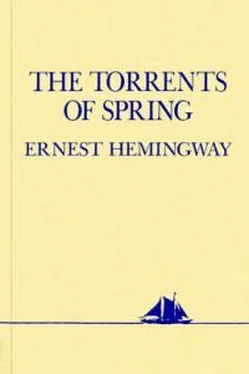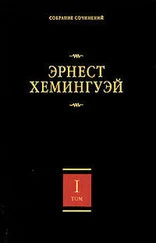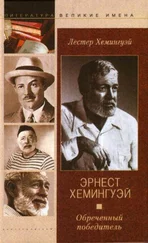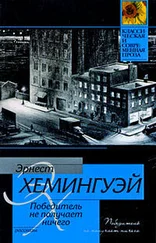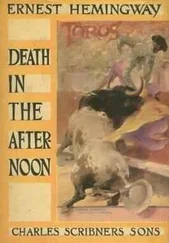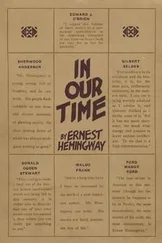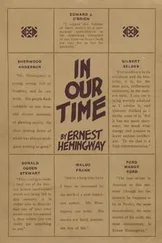Эрнест Хемингуэй - The Torrents of Spring
Здесь есть возможность читать онлайн «Эрнест Хемингуэй - The Torrents of Spring» — ознакомительный отрывок электронной книги совершенно бесплатно, а после прочтения отрывка купить полную версию. В некоторых случаях можно слушать аудио, скачать через торрент в формате fb2 и присутствует краткое содержание. Год выпуска: 2021, Издательство: epubBooks Classics, Жанр: Биографии и Мемуары, Критика, на английском языке. Описание произведения, (предисловие) а так же отзывы посетителей доступны на портале библиотеки ЛибКат.
- Название:The Torrents of Spring
- Автор:
- Издательство:epubBooks Classics
- Жанр:
- Год:2021
- ISBN:нет данных
- Рейтинг книги:3 / 5. Голосов: 1
-
Избранное:Добавить в избранное
- Отзывы:
-
Ваша оценка:
- 60
- 1
- 2
- 3
- 4
- 5
The Torrents of Spring: краткое содержание, описание и аннотация
Предлагаем к чтению аннотацию, описание, краткое содержание или предисловие (зависит от того, что написал сам автор книги «The Torrents of Spring»). Если вы не нашли необходимую информацию о книге — напишите в комментариях, мы постараемся отыскать её.
The Torrents of Spring — читать онлайн ознакомительный отрывок
Ниже представлен текст книги, разбитый по страницам. Система сохранения места последней прочитанной страницы, позволяет с удобством читать онлайн бесплатно книгу «The Torrents of Spring», без необходимости каждый раз заново искать на чём Вы остановились. Поставьте закладку, и сможете в любой момент перейти на страницу, на которой закончили чтение.
Интервал:
Закладка:
The Torrents of Spring
Ernest Hemingway
Epigraph
And perhaps there is one reason why a comic writer should of all others be the least excused for deviating from nature, since it may not be always so easy for a serious poet to meet with the great and the admirable; but life everywhere furnishes an accurate observer with the ridiculous.
HENRY FIELDING
Part One
The only source of the true Ridiculous (as it appears to me) is affectation.
HENRY FIELDING1. Chapter One
Yogi Johnson stood looking out of the window of a big pump–factory in Michigan. Spring would soon be here. Could it be that what this writing fellow Hutchinson had said, “If winter comes can spring be far behind?” would be true again this year? Yogi Johnson wondered. Near Yogi at the next window but one stood Scripps O’Neil, a tall, lean man with a tall, lean face. Both stood and looked out at the empty yard of the pump–factory. Snow covered the crated pumps that would soon be shipped away. Once the spring should come and the snow melt, workmen from the factory would break out the pumps from piles where they were snowed in and haul them down to the G. R. & I. station, where they would be loaded on flat–cars and shipped away. Yogi Johnson looked out of the window at the snowed–in pumps, and his breath made little fairy tracings on the cold windowpane. Yogi Johnson thought of Paris. Perhaps it was the little fairy tracings that reminded him of the gay city where he had once spent two weeks. Two weeks that were to have been the happiest weeks of his life. That was all behind him now. That and everything else.
Scripps O’Neil had two wives. As he looked out of the window, standing tall and lean and resilient with his own tenuous hardness, he thought of both of them. One lived in Mancelona and the other lived in Petoskey. He had not seen the wife who lived in Mancelona since last spring. He looked out at the snow–covered pump–yards and thought what spring would mean. With his wife in Mancelona Scripps often got drunk. When he was drunk he and his wife were happy. They would go down together to the railway station and walk out along the tracks, and then sit together and drink and watch the trains go by. They would sit under a pine–tree on a little hill that overlooked the railway and drink. Sometimes they drank all night. Sometimes they drank for a week at a time. It did them good. It made Scripps strong.
Scripps had a daughter whom he playfully called Lousy O’Neil. Her real name was Lucy O’Neil. One night, after Scripps and his old woman had been out drinking on the railroad line for three or four days, he lost his wife. He didn’t know where she was. When he came to himself everything was dark. He walked along the railroad track toward town. The ties were stiff and hard under his feet. He tried walking on the rails. He couldn’t do it. He had the dope on that all right. He went back to walking along the ties. It was a long way into town. Finally he came to where he could see the lights of the switch–yard. He cut away from the tracks and passed the Mancelona High School. It was a yellow–brick building. There was nothing rococo about it, like the buildings he had seen in Paris. No, he had never been in Paris. That was not he. That was his friend Yogi Johnson.
Yogi Johnson looked out of the window. Soon it would be time to shut the pump–factory for the night. He opened the window carefully, just a crack. Just a crack, but that was enough. Outside in the yard the snow had begun to melt. A warm breeze was blowing. A chinook wind the pump fellows called it. The warm chinook wind came in through the window into the pump–factory. All the workmen laid down their tools. Many of them were Indians.
The foreman was a short, iron–jawed man. He had once made a trip as far as Duluth. Duluth was far across the blue waters of the lake in the hills of Minnesota. A wonderful thing had happened to him there.
The foreman put his finger in his mouth to moisten it and held it up in the air. He felt the warm breeze on his finger. He shook his head ruefully and smiled at the men, a little grimly perhaps.
“Well, it’s a regular chinook, boys,” he said.
Silently for the most part, the workmen hung up their tools. The half–completed pumps were put away in their racks. The workmen filed, some of them talking, others silent, a few muttering, to the washroom to wash up.
Outside through the window came the sound of an Indian war–whoop.
2. Chapter Two
Scripps O’Neil stood outside the Mancelona High School looking up at the lighted windows. It was dark and the snow was falling. It had been falling ever since Scripps could remember. A passer–by stopped and stared at Scripps. After all, what was this man to him? He went on.
Scripps stood in the snow and stared up at the lighted windows of the High School. Inside there people were learning things. Far into the night they worked, the boys vying with the girls in their search for knowledge, this urge for the learning of things that was sweeping America. His girl, little Lousy, a girl that had cost him a cool seventy–five dollars in doctors’ bills, was in there learning. Scripps was proud. It was too late for him to learn, but there, day after day and night after night, Lousy was learning. She had the stuff in her, that girl.
Scripps went on up to his house. It was not a big house, but it wasn’t size that mattered to Scripps’s old woman.
“Scripps,” she often said when they were drinking together, “I don’t want a palace. All I want is a place to keep the wind out.” Scripps had taken her at her word. Now, as he walked in the late evening through the snow and saw the lights of his own home, he felt glad that he had taken her at her word. It was better this way than if he were coming home to a palace. He, Scripps, was not the sort of chap that wanted a palace.
He opened the door of his house and went in. Something kept going through his head. He tried to get it out, but it was no good. What was it that poet chap his friend Harry Parker had met once in Detroit had written? Harry used to recite it: “Through pleasures and palaces though I may roam. When you something something something there’s no place like home.” He could not remember the words. Not all of them. He had written a simple tune to it and taught Lucy to sing it. That was when they first were married. Scripps might have been a composer, one of these chaps that write the stuff the Chicago Symphony Orchestra plays, if he had had a chance to go on. He would get Lucy to sing that song tonight. He would never drink again. Drinking robbed him of his ear for music. Times when he was drunk the sound of the whistles of the trains at night pulling up the Boyne Falls grade seemed more lovely than anything this chap Stravinsky had ever written. Drinking had done that. It was wrong. He would get away to Paris. Like this chap Albert Spalding that played the violin.
Scripps opened the door. He went in. “Lucy,” he called, “it is I, Scripps.” He would never drink again. No more nights out on the railroad. Perhaps Lucy needed a new fur coat. Perhaps, after all, she had wanted a palace instead of this place. You never knew how you were treating a woman. Perhaps, after all, this place was not keeping out the wind. Fantastic. He lit a match. “Lucy!” he called, and there was a note of dumb terror in his mouth. His friend Walt Simmons had heard just such a cry from a stallion that had once been run over by a passing autobus in the Place Vendôme in Paris. In Paris there were no geldings. All the horses were stallions. They did not breed mares. Not since the war. The war changed all that.
Читать дальшеИнтервал:
Закладка:
Похожие книги на «The Torrents of Spring»
Представляем Вашему вниманию похожие книги на «The Torrents of Spring» списком для выбора. Мы отобрали схожую по названию и смыслу литературу в надежде предоставить читателям больше вариантов отыскать новые, интересные, ещё непрочитанные произведения.
Обсуждение, отзывы о книге «The Torrents of Spring» и просто собственные мнения читателей. Оставьте ваши комментарии, напишите, что Вы думаете о произведении, его смысле или главных героях. Укажите что конкретно понравилось, а что нет, и почему Вы так считаете.
